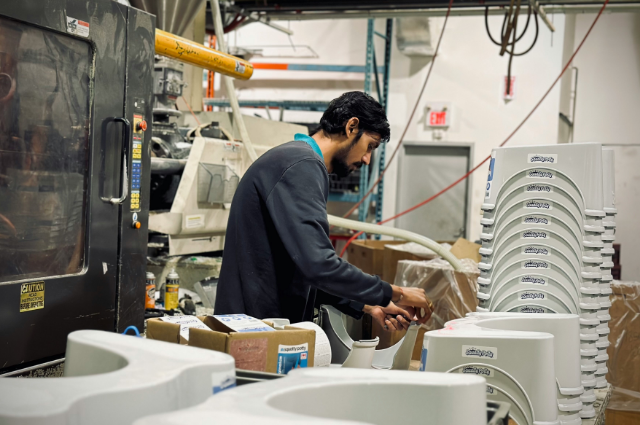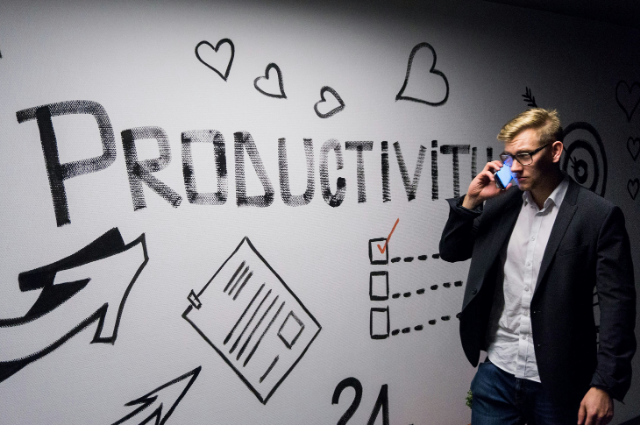
Photo by Resume Genius on Unsplash
INTRODUCTION: SETTING THE CONTEXT
The Rise of Remote Work and Automation
In recent years, especially post-pandemic, India has witnessed a significant shift towards remote work and automation across industries. The adoption of digital platforms for communication, project management, and workflow has surged, fundamentally transforming how businesses operate.
Increased Reliance on Technology
With sectors like IT, finance, healthcare, and education becoming heavily reliant on digital tools, India's workforce now faces unprecedented technological demands. Automation has streamlined tasks, but it has also introduced new challenges, particularly around mental health and job satisfaction.
Defining Tech-Induced Mental Fatigue
This term refers to the psychological exhaustion experienced by individuals due to prolonged exposure to digital devices, excessive screen time, and the continuous need to interact with technology. For India's rapidly evolving workforce, balancing the benefits of automation and remote work with mental well-being is becoming an increasingly critical issue.
THE IMPACT OF AUTOMATION ON JOB ROLES AND MENTAL HEALTH

- Transformation Across Sectors: Automation is rapidly reshaping job roles in India, particularly in sectors like IT, manufacturing, and services. Routine and repetitive tasks are being taken over by machines, reducing the demand for certain roles while creating opportunities in tech-driven fields. The workforce must now shift from traditional skill sets to those aligned with emerging technologies.
- Job Insecurity and Displacement: The rise of automation has left many workers feeling uncertain about their job stability. As machines and AI systems replace human labor in specific functions, employees are left grappling with the fear of job displacement. This insecurity often fuels anxiety and stress, as workers worry about their future in an increasingly automated landscape.
- Constant Upskilling and Cognitive Overload: With the rapid pace of technological advancements, employees face immense pressure to continuously upskill in order to stay relevant. The need to learn new tools, platforms, and processes can create cognitive overload, leading to mental exhaustion. This constant adaptation can also cause a sense of burnout, as workers struggle to keep pace with the demands of automation-driven industries.
- Psychological Toll: Beyond the fear of displacement, the psychological strain of automation is evident in increased levels of anxiety, frustration, and stress. As employees navigate an evolving job market, the pressure to perform at par with technology often leads to feelings of inadequacy and emotional fatigue.
Are we ready to handle the psychological fallout of an automated future? How will India’s workforce adapt to this seismic shift in job roles?
REMOTE WORK AND ITS CHALLENGES
Escalating Screen Time:
The shift to remote work has led to a significant increase in screen time. Constant exposure to screens through video calls, emails, and digital communication platforms contributes to mental exhaustion, often leaving employees drained by the end of the day.
Blurring Work-Life Boundaries:
With no clear separation between home and office, remote workers find it challenging to switch off from their jobs. This lack of boundaries often results in longer working hours, contributing to stress and burnout.
Isolation and Loneliness:
While remote work provides flexibility, it also leads to social isolation. The absence of face-to-face interaction with colleagues can create feelings of loneliness, negatively impacting mental well-being.
As the lines between work and life continue to blur, how are you coping with the mental challenges of working from home?
COGNITIVE LOAD AND DIGITAL OVERWHELM
1. Multitasking and Information Overload:
Remote work often requires juggling multiple tasks simultaneously—whether it’s switching between projects, responding to emails, or attending virtual meetings. This constant multitasking significantly increases cognitive load, pushing the brain to process large amounts of information in short bursts. Over time, this continuous strain can lead to exhaustion and a decrease in productivity.
2. Decision Fatigue in a Tech-Saturated World
In a digitally-driven work environment, employees are forced to make numerous small decisions throughout the day. From choosing which email to prioritize to responding to instant messages, this decision-making process consumes mental energy. This leads to "decision fatigue," where the ability to make thoughtful choices declines, impacting both work performance and personal well-being.
3. The Toll of 24/7 Connectivity
With digital notifications pinging at all hours and the pressure to stay connected, employees often find it hard to unplug. Emails, chat platforms, and task reminders create a constant stream of interruptions that contribute to mental fatigue. The inability to disconnect mentally from work further exacerbates stress and reduces the quality of downtime, leading to burnout.
With the rise of remote work, how do you manage the overwhelming digital demands on your mind?
TECHNOSTRESS AND ITS PSYCHOLOGICAL IMPLICATIONS
1. What is Technostress?
Technostress refers to the psychological strain caused by excessive use of technology, particularly when adapting to new digital tools or managing an overload of information. In India's rapidly growing digital economy, technostress is becoming a significant concern for workers across various sectors, from IT to education.
2. How Does Technostress Impact Mental Well-Being?
Constant exposure to technology leads to mental fatigue, affecting workers' emotional and cognitive health. Many employees experience anxiety when dealing with complex software or new digital systems. Frustration arises when technical issues disrupt work processes or deadlines, and the overwhelming need to be "always connected" adds to the stress.
3. Common Symptoms of Technostress
- Anxiety: Worrying about technology failures or not being able to keep up with the latest tools.
- Frustration: Feeling irritated due to technical difficulties or the pressure to be available online constantly.
- Overwhelm: Experiencing cognitive overload from managing multiple devices, apps, or a flood of digital information.
4. Impact on Productivity and Motivation
Technostress lowers productivity as employees struggle to concentrate or manage time effectively. Constant digital interruptions can lead to mistakes and reduce the overall quality of work. Furthermore, motivation declines when workers feel exhausted or resentful towards the tools meant to make their tasks easier.
5. Effect on Job Satisfaction
Employees facing persistent technostress often report lower job satisfaction. The pressure of keeping pace with digital demands makes work feel more burdensome, leading to disengagement or burnout. Over time, this can also increase employee turnover and absenteeism.
Are you managing technology, or is it managing you?
CASE STUDIES AND RESEARCH

1. Indian Studies Highlight Tech Fatigue
Several Indian research studies have documented the psychological impact of remote work and automation. A notable study by the National Institute of Mental Health and Neurosciences (NIMHANS) revealed that nearly 70% of employees working remotely experienced some form of mental fatigue. The constant reliance on technology, lack of face-to-face interaction, and increased workloads were key contributors to stress and burnout.
2. Real-Life Struggles of Indian Workers
Take, for example, Rakesh, a software engineer in Bengaluru, who reported feeling drained after months of working from home. He shared how back-to-back video calls, constant emails, and 12-hour workdays blurred his personal and professional life. The lack of physical breaks and continuous screen exposure led to mental exhaustion, making it hard for him to focus on tasks or unwind after work.
3. Pandemic Trends and Mental Health
During the COVID-19 pandemic, mental health challenges among Indian workers escalated. Studies indicated a sharp rise in anxiety and burnout, with employees reporting feelings of isolation and pressure to perform in an unstable job market. Remote work, though convenient for some, triggered prolonged hours, reduced physical activity, and tech burnout for many.
But the question remains: How long can India's workforce sustain this tech-driven lifestyle before mental fatigue becomes a bigger crisis?
STRATEGIES FOR COPING WITH TECH-INDUCED MENTAL FATIGUE

In the fast-paced world of technology and remote work, mental fatigue has become a pressing concern for many employees.
Here are some effective strategies that can help mitigate this growing issue:
1. Embrace Mindfulness and Mental Health Programs
- Adoption of Mindfulness Practices: Companies across India are increasingly integrating mindfulness techniques into their work culture. This includes meditation sessions, yoga classes, and workshops focused on mental wellness.
- Employee Assistance Programs (EAPs): Many organizations are providing access to EAPs, which offer counseling services and mental health resources to help employees cope with stress and fatigue.
2. Prioritize Work-Life Balance
- Setting Clear Boundaries: Employees should establish defined work hours and communicate these boundaries to colleagues. This helps to separate professional responsibilities from personal time, reducing the likelihood of burnout.
- Encouraging Regular Breaks: Taking short, scheduled breaks throughout the workday can significantly enhance focus and productivity. Techniques such as the Pomodoro Technique can help in managing work sessions and breaks effectively.
- Limiting Screen Time: Employees are encouraged to monitor their screen time and take periodic digital detoxes to refresh their minds. Reducing the time spent on devices outside work hours can also promote better mental health.
3. Support from Employers
- Mental Health Resources: Companies should prioritize mental health by offering resources such as workshops, access to therapists, and support groups. This can foster an environment where employees feel safe to discuss their mental health challenges.
- Flexible Work Schedules: Providing flexible work hours allows employees to work during their most productive times, reducing stress and fatigue. Employers can implement staggered shifts or remote work options tailored to individual needs.
- Reducing Digital Overwhelm: Employers can help by minimizing unnecessary digital communication and meetings, allowing employees to focus on their tasks without constant interruptions.
As we navigate the challenges posed by an increasingly digital work environment, it’s essential to consider how these strategies can create a healthier workplace.
Are you taking the necessary steps to safeguard your mental well-being in this tech-driven era?
CONCLUSION: THE ROAD AHEAD
The rise of automation and remote work in India has brought significant psychological challenges, including increased stress, feelings of isolation, and the threat of job insecurity. Workers are grappling with technostress, characterized by anxiety and burnout as they adapt to ever-evolving technology.
To mitigate these issues, it is essential to foster a balanced tech-work culture. Organizations must prioritize employee well-being by promoting healthy work-life boundaries, encouraging regular breaks, and providing mental health resources to help workers navigate the demands of modern technology.
As India moves forward in the digital age, it is crucial to prepare the workforce mentally and emotionally for ongoing technological changes. This includes investing in continuous learning and development programs that empower employees to adapt to new tools and processes while maintaining their mental health.

A Call to Action:
As we reflect on these challenges, we must ask ourselves:
How can we collectively create a supportive environment that promotes both productivity and well-being in our increasingly tech-driven workplaces?
Are we ready to prioritize mental health in our approach to the future of work?
